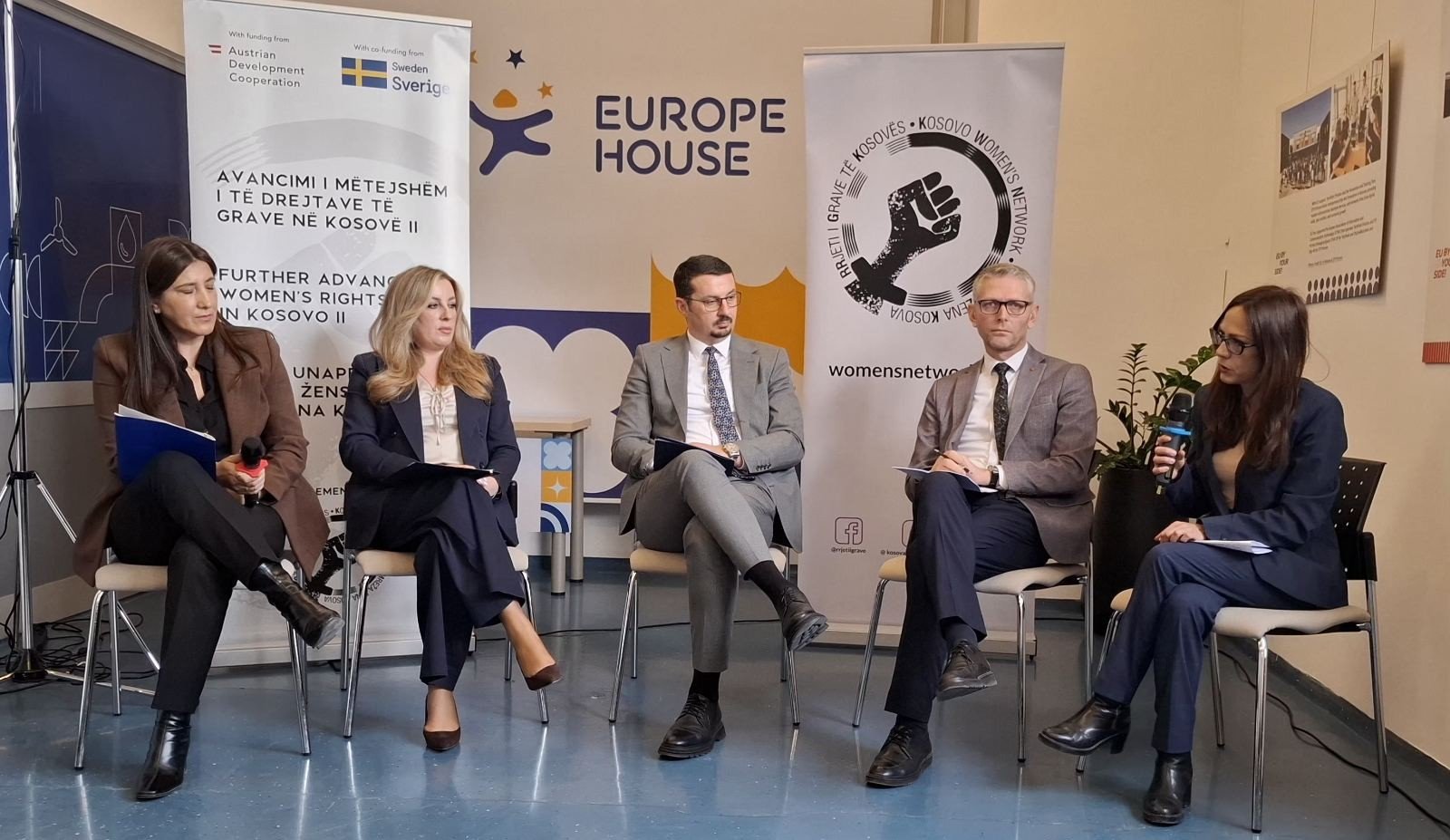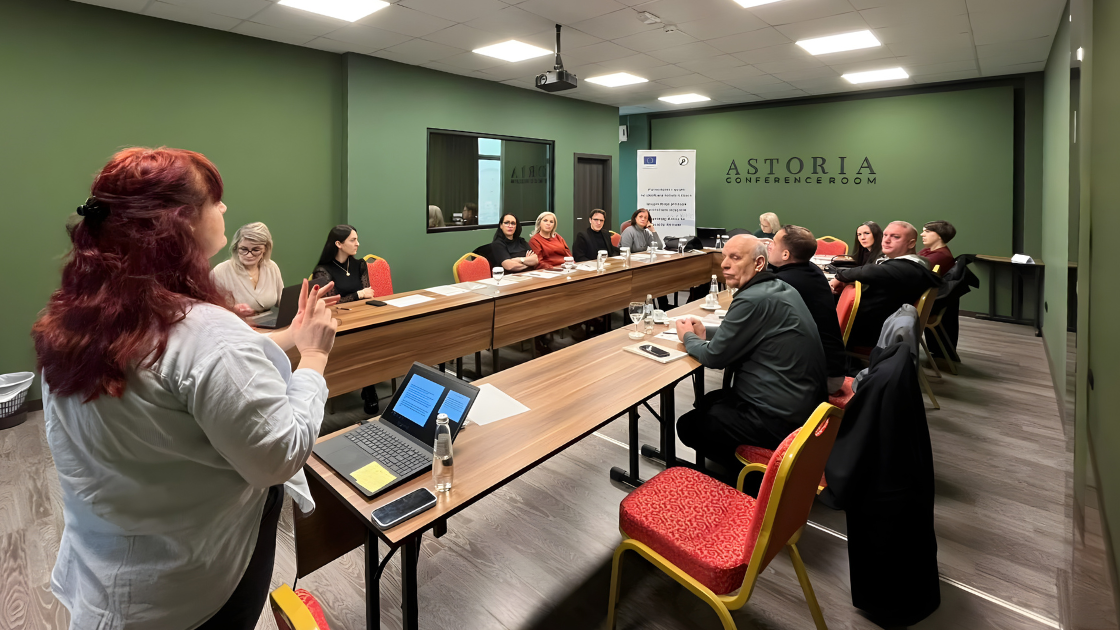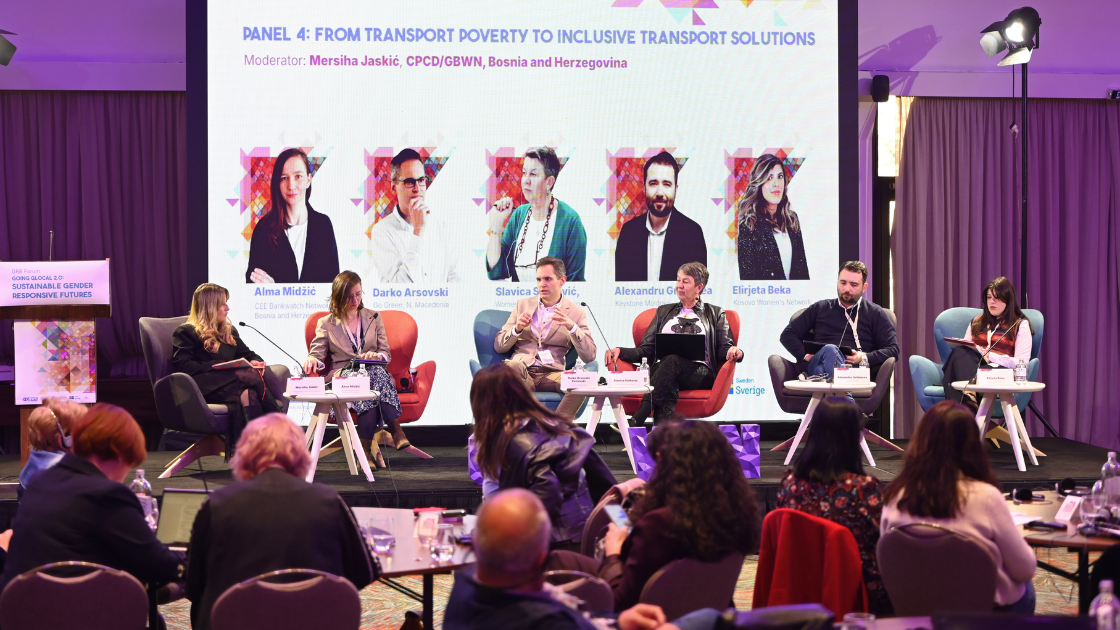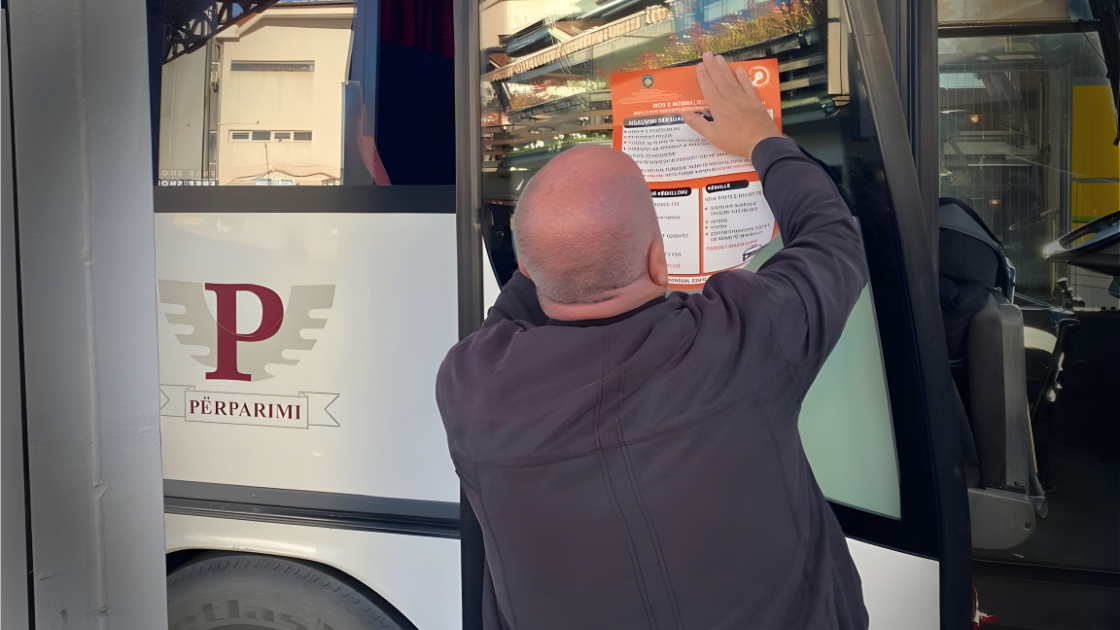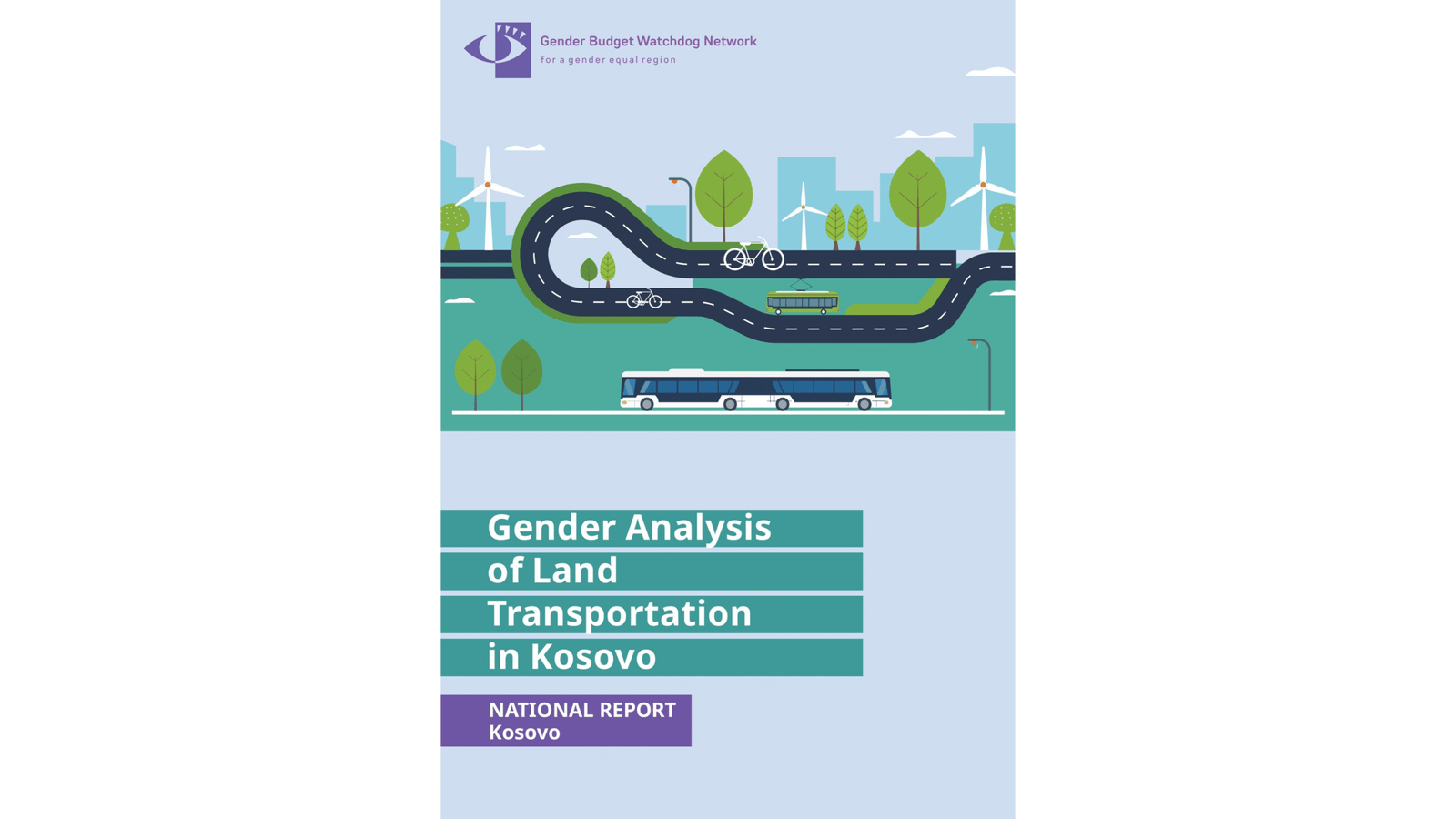On 16 February in Skenderaj, Kosovo Women’s Network (KWN) member organization, Drugëza, distributed leaflets to business owners and employees informing them of KWN’s awareness-raising campaign on gender responsive family policies.
The volunteers distributed posters and placed them in the visible places of the business premises.
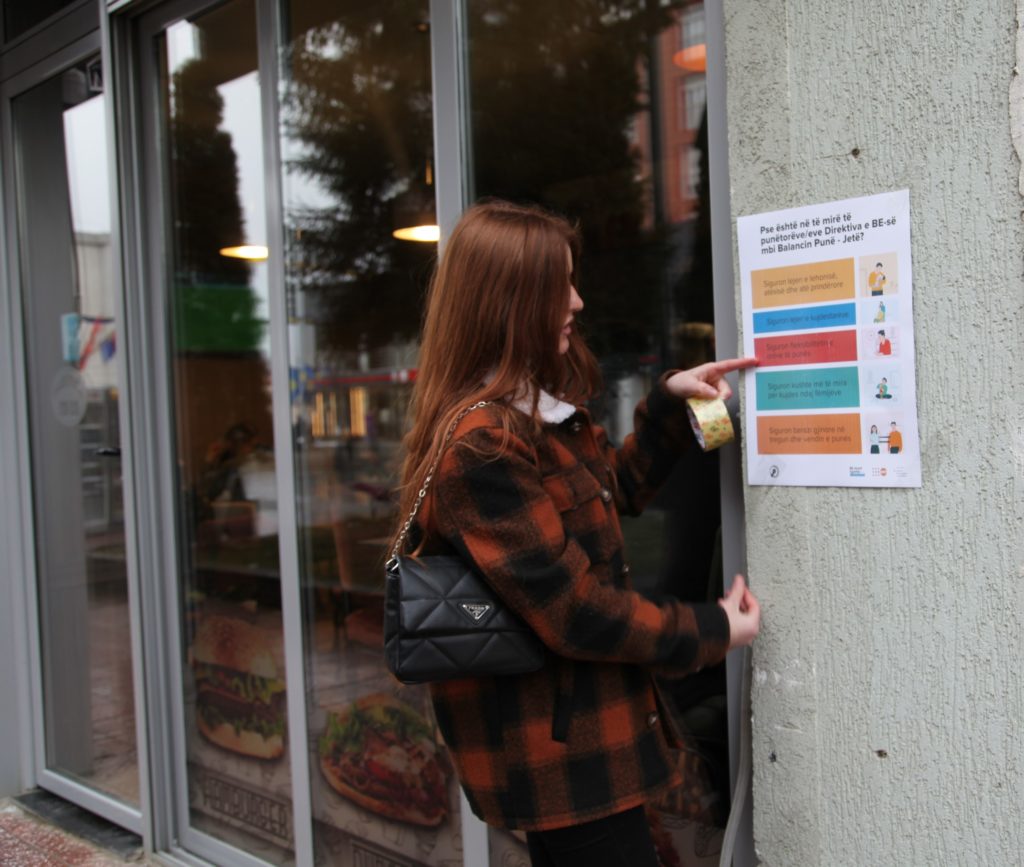
Gentiana Zeqiri, Manager of the organization Drugëza said that all workers, especially women, benefit from the EU Directive.
“The EU Work-Life Balance Directive creates opportunities for flexibility and appropriate conditions in the workplace, as well as increases the well-being of workers. In particular it contributes to the empowerment of women and the increase of gender equality,” Zeqiri said.
Whereas, Adelina Tërshani, Project Coordinator, KWN, added that the implementation of this directive helps achieving the gender equality.
“KWN by promoting the EU Work-Life Balance Directive at the local level in cooperation with member organizations will inevitably affect the implementation of family-friendly policies in small businesses and increase the number of women participating in the workforce,” Tërshani said.
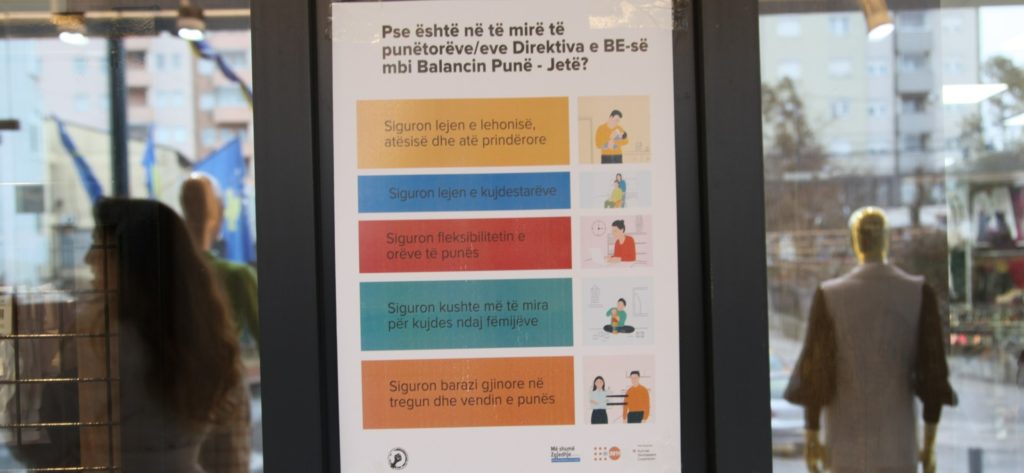
The Chief Executive Officer of Eko-Natyra, Arben Veliu, welcomed this campaign.
“The EU Work-Life Balance Directive is important because it creates a friendlier and more acceptable environment for workers, as they spend much of their day at work. It is also important for employers in order to have a continuity and stability of their work, as this helps to create stability of the company as well.“ Veliu said.
Last year, on November 3, Drugëza undertook an awareness campaign for the implementation of the EU Directive. This organization held a meeting with 15 representatives of civil society organizations in Skenderaj, within the framework of the initiative “Creating friendly workplace”, supported by the 15th round of the Kosovo Women’s Fund (KWF), and financed the United Nations Population Fund (UNFPA) through KWN’s “More Choices: Gender Responsive Family Policy for the Private Sector in the Western Balkans and Moldova” funded by the Austrian Development Agency (ADA), the operational unit of the Austrian Cooperation Agency.
Read HERE more about this activity.
READ ALSO: Kosovo Women’s Fund Allocates €109,312 for 23 Organizations in Kosovo. You can read more about that HERE.


